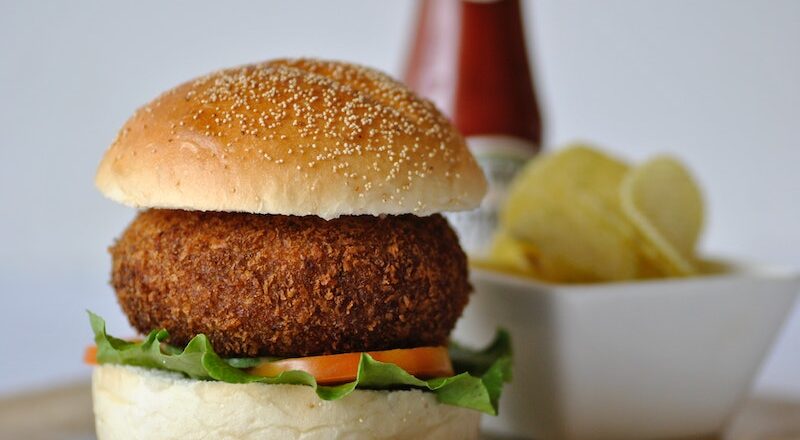RESPECTED ITALIAN SCIENTIST POINTS OUT 5 FAKE NEWS ABOUT FAKE FOODS

Professor Giuseppe Pulina* recently shared his thoughts on what he perceives as fake news about artificial foods in an Italian newspaper. We’ve summarised what he said.
In Italy, Coldiretti, the main agricultural association of the country, launched an informational campaign about the fake foods attempting to replace animal products (fake meat, fake milk and fake eggs, already in production, and fake fish almost ready for launch on the market).
The incessant promotional activities around these imitation products are based on five pieces of fake news which I try to debunk below with scientific evidence and common sense.
- Artificial foods are similar in nutritional value to natural foods
FALSE. Metabolomics, a sophisticated analysis that distinguishes thousands of compounds in biological matrices applied to natural animal products and their artificial plant substitutes, reveals that the latter differs from the originals for more than 90% of their components. Declarations of nutritional equivalence reported on the labels are therefore misleading for consumers. On the other hand, there is no data on fake meat from animal stem cell cultures, as producers are careful not to make samples available for analysis. Attempts have been made to obtain samples to submit them to laboratory tests without any success, demonstrating perhaps the producers’ unwillingness to inform citizens from a proper scientific basis.
- Artificial foods are as good as natural foods
FALSE. In an attempt to emulate nature, synthetic food manufacturers assemble many compounds whose purpose is to trick our senses into making milk, meat, eggs, and fish seem like what is actually meatloaf or a hydrolyzate of biological substrates and synthesis. The failure of the Veggie Burger, as swiftly removed from the McDonald’s menu as it was added in US chains, was a sensational demonstration of customer disinterest, resulting in a share price drop for Beyond Meat on the stock market. When it comes to the sensory equivalence of imitation dairy products, it is enough to simply think of the wide-ranging aromatic complexity of Italy’s quality cheeses to conclude that attempting to reconstruct their structure and bouquet would be practically impossible.
- Artificial foods are healthier than natural foods
FALSE. Assemblages of plant, microbial, fungal and synthetic biological matrices are ultra-processed foods often blacklisted by the EU. In the case of fake meat, more than 40 components, including high doses of sodium chloride, are added to plant-based meatloaf, for example. For stem cell derivatives, it is not clear which catabolites (waste substances of metabolism that the animal organism naturally removes) or residues are present due to the lack of scientific data available (see point 1). Neither are the effects of the growth hormone promoters used on the gene expression of cells made to proliferate in large bioreactors hosting these processes. In addition, natural foods provide essential micronutrients and cofactors to human nutrition, usually absent in artificial ones, making the former healthier than the latter. Finally, the claim that natural animal-source foods are harmful to health has been disproved by countless scientific evidence, so it is high time to remove this argument definitively from the debate.
- Artificial foods impact the environment much less than natural foods
FALSE. Animal-source food is largely produced in the countryside under conditions where emissions production and removals are balanced. In the case of greenhouse gases, methane emissions and nitrous oxide from livestock farms are balanced off by the ability of crops and wooded areas to sequester carbon. In Italian farming, the balance is equal on average (20 million tonnes of CO2eq emitted according to ISPRA in 2021 and the same amount sequestered according to cautious estimates). For fake food produced in biofactories, however, only emissions are accounted for. In addition, the impacts of emissions must be measured in relation to the nutritional value of food, and, as mentioned, natural foods are far superior to plant derivatives. So the emissions recalculated for the contribution that natural foods make to our nutritional well-being are much lower per functional unit.
- Artificial foods are more ethical because they are “cruelty-free”
FALSE. To brand fishermen and fish farmers as a race of sinister characters dedicated to animal cruelty is an accusation bordering on the potential for a class action for defamation against companies using this term for advertising their products. The welfare of farmed animals is a cornerstone of the ethics of livestock farming, not imposed by the legislator but deeply rooted in farmers’ behaviours on a daily basis. Mistreating animals is a crime punishable by the Italian Penal Code and is also counterproductive for efficient and productive livestock farming. Respect for people and animals is a matter that concerns everyone. For farmers, respect for animal welfare is an absolute value in their profession.
Giuseppe Pulina* – President Emeritus of the Association for Science and Animal Production, Professor of Special Zootechnics at the Department of Agriculture of the University of Sassari and President of the Sustainable Meat Association.
Source: Carni Sostenibili